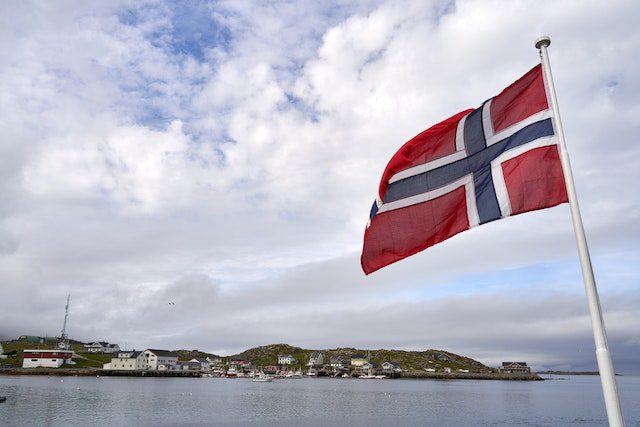Scholarship details
Humanitarian efforts across the globe require dedicated leaders who not only possess a deep understanding of complex crises but are also equipped with the skills to inspire and manage changes effectively. Recognizing the need for such individuals, Norway is introducing an extraordinary opportunity known as the Humanitarian Leadership Scholarship in 2025. This program aims to cultivate future leaders in the humanitarian field by offering advanced education, practical skills, and a transformative experience in one of the world’s most progressive countries.
Host Organization Overview
The prestigious Norwegian Refugee Council (NRC) hosts the Humanitarian Leadership Scholarship program. Founded in 1946, NRC is a non-governmental, humanitarian organization committed to aiding people forced to flee their homes due to conflict, natural disaster, and other crises. With a presence in over 31 countries and employing thousands of staff members, NRC works extensively in Providing food, shelter, education, and legal aid to refugees and internally displaced people.
NRC’s Mission and Values
NRC’s mission embodies the principles of protection, human rights, and justice. They provide life-saving assistance during emergencies and long-term support in post-crisis recovery. The organization emphasizes empowering affected communities to regain control over their futures. Staunchly abiding by the principles of independence, neutrality, and impartiality, NRC ensures that aid reaches those in dire need without discrimination.
Insight into the Host Country: Norway
A Geographic and Cultural Overview
Norway, known for its majestic fjords, snowy landscapes, and vibrant Northern Lights, sits in Northern Europe and forms part of the Scandinavian Peninsula. The country is famed for its stunning natural beauty, which attracts tourists from around the world. However, Norway offers much more than just breathtaking scenery.
With a population of approximately 5.4 million people, Norway radiates cultural richness, showcasing a blend of traditional customs and modern-day sophistication. Norwegian society prides itself on equality, progressive politics, and a high standard of living. The country consistently ranks at the top in global indexes for happiness, prosperity, and quality of life.
Norway’s Commitment to Education and Innovation
Education in Norway is highly valued and is generally free, from elementary school through university. The emphasis on learning and innovation makes it an ideal location for aspiring humanitarian leaders. Norwegian universities and educational institutions are renowned for their forward-thinking approaches and strong emphasis on research.
Humanitarian Principles at the Heart of Norwegian Society
Norway has a profound history of humanitarian efforts and peace-building initiatives. It regularly participates in international peacekeeping missions and allocates substantial funding to global development and humanitarian aid. The Norwegian government and non-governmental organizations work closely together to uphold human rights and provide assistance to those impacted by crises worldwide.
The Humanitarian Leadership Scholarship: Objectives and Structure
The Humanitarian Leadership Scholarship is designed to offer a comprehensive learning experience tailored for individuals passionate about making a tangible difference in the world. Here’s an outline of the program’s key components:
Academic Excellence
The scholarship covers tuition fees for a two-year master’s program in Humanitarian Leadership at one of Norway’s leading universities. The curriculum integrates theoretical knowledge with practical learning. Courses focus on subjects like human rights law, international relations, refugee protection, crisis management, and sustainable development.
Professors and lecturers with extensive field experience in humanitarian operations guide students through case studies, role-playing exercises, and interactive discussions. This rigorous academic structure ensures that students not only grasp complex concepts but also learn to apply them in real-world scenarios.
Practical Field Experience
In addition to classroom learning, the scholarship encompasses mandatory fieldwork with the Norwegian Refugee Council. Students engage in internships and placements within NRC operations in various parts of the world. These hands-on experiences are critical for understanding the nuanced challenges of humanitarian work and developing practical skills.
Fieldwork often includes working in refugee camps, participating in emergency response teams, or contributing to community rehabilitation projects. This in-field exposure is invaluable, offering a raw and authentic glimpse into the life and work of humanitarian leaders.
Skills Development Workshops
Throughout the program, students participate in workshops focused on leadership and management skills. Topics include conflict resolution, negotiation techniques, emotional intelligence, and strategic planning. Expert facilitators mentor scholars, helping them hone their abilities to lead and inspire teams effectively.
Cultural Immersion and Networking
Norwegian culture and society play an integral part in the scholarship experience. Scholars are encouraged to immerse themselves in local customs and traditions, fostering a deep appreciation for Norway’s way of life. Interacting with fellow students, faculty, and humanitarian professionals provides ample networking opportunities that can be beneficial for future career prospects.
Eligibility Criteria and Application Process
The Humanitarian Leadership Scholarship is open to candidates from all backgrounds, provided they meet the following criteria:
- Academic Requirements: Applicants must have an undergraduate degree in a relevant field such as International Relations, Sociology, or Political Science.
- Experience: Practical experience in humanitarian work, either through employment, volunteering, or internships, is highly preferred.
- Language Proficiency: Proficiency in English is mandatory, as all courses are conducted in English. Knowledge of other languages, especially French or Arabic, is an added advantage due to the international placement component.
- Personal Statement and Recommendations: A compelling personal statement outlining the candidate’s motivation and vision for humanitarian leadership, along with letters of recommendation, is required.
Application Timeline
The application process opens in January 2025 and closes in April 2025. Shortlisted candidates are invited for interviews, and final selections are announced by June 2025. Successful applicants begin their studies in September 2025.
Conclusion
The Humanitarian Leadership Scholarship in Norway offers an exceptional opportunity for those dedicated to humanitarian causes. By merging top-tier academic instruction, practical field experience, and a rich cultural immersion, this scholarship prepares future leaders to tackle global challenges with competency and compassion.
Norway’s commitment to humanitarian aid, combined with the expertise and resources of the Norwegian Refugee Council, ensures that scholars are well-equipped to make a significant impact in the lives of countless individuals affected by crises worldwide. This initiative not only nurtures individual growth but also contributes to a more just, equitable, and peaceful world.





















